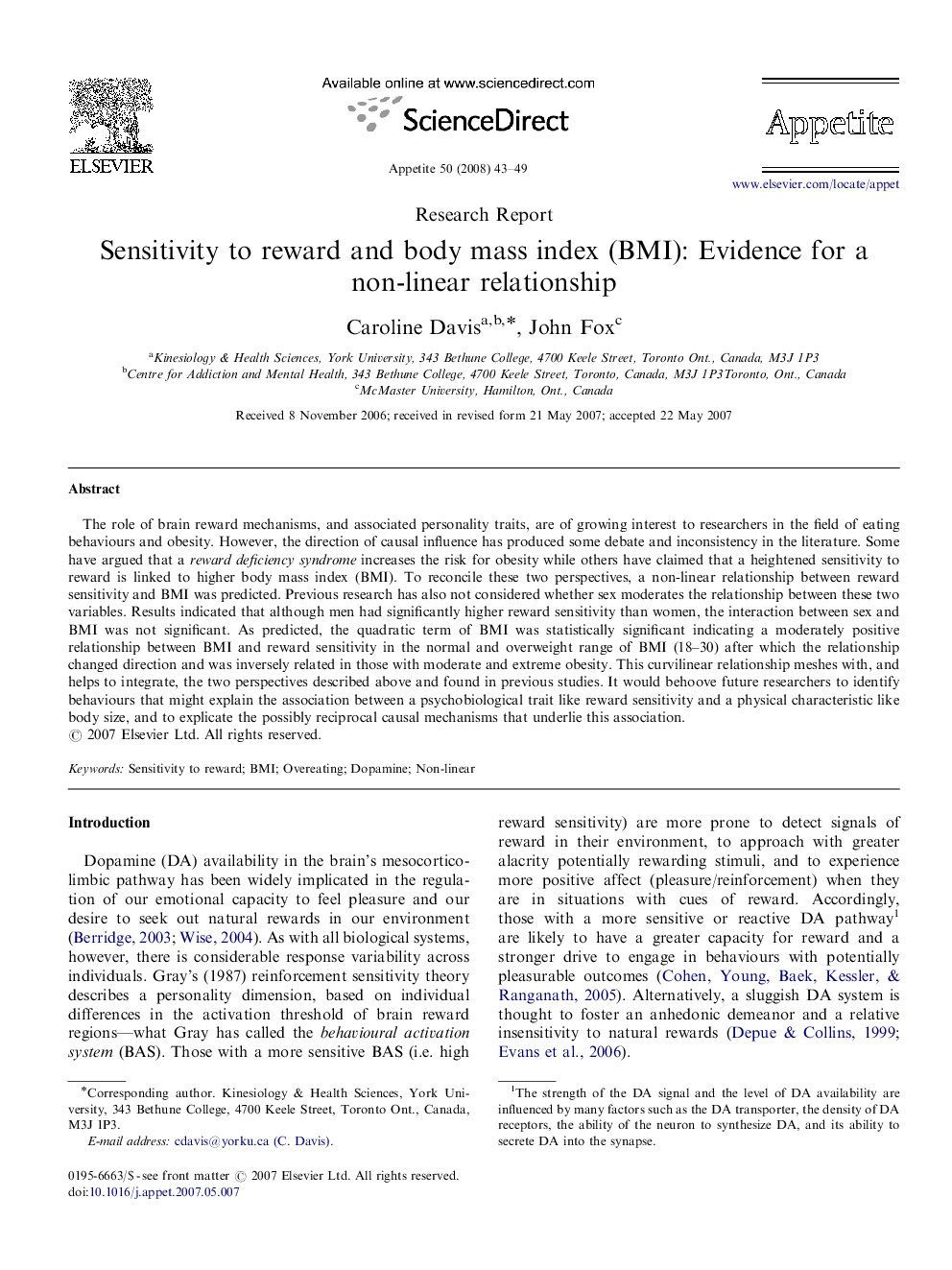| Article ID | Journal | Published Year | Pages | File Type |
|---|---|---|---|---|
| 941551 | Appetite | 2008 | 7 Pages |
The role of brain reward mechanisms, and associated personality traits, are of growing interest to researchers in the field of eating behaviours and obesity. However, the direction of causal influence has produced some debate and inconsistency in the literature. Some have argued that a reward deficiency syndrome increases the risk for obesity while others have claimed that a heightened sensitivity to reward is linked to higher body mass index (BMI). To reconcile these two perspectives, a non-linear relationship between reward sensitivity and BMI was predicted. Previous research has also not considered whether sex moderates the relationship between these two variables. Results indicated that although men had significantly higher reward sensitivity than women, the interaction between sex and BMI was not significant. As predicted, the quadratic term of BMI was statistically significant indicating a moderately positive relationship between BMI and reward sensitivity in the normal and overweight range of BMI (18–30) after which the relationship changed direction and was inversely related in those with moderate and extreme obesity. This curvilinear relationship meshes with, and helps to integrate, the two perspectives described above and found in previous studies. It would behoove future researchers to identify behaviours that might explain the association between a psychobiological trait like reward sensitivity and a physical characteristic like body size, and to explicate the possibly reciprocal causal mechanisms that underlie this association.
